Certainly, rapid progress in artificial intelligence will continue to be made and be widely reported. Despite the controversies, autonomous vehicles will proliferate, and it would be good to see serious, in-depth articles about industry regulation (licensing for the use of autonomous vehicles on public roads, safety standards, insurance, etc.) rather than last year’s sensational coverage focusing on accidents and disasters. We may also hear much more about connected vehicles: automobiles that are always on-line.
2019 is likely to witness continued debates on data security (focused particularly on social networks – their use and misuse, especially as regards the personal information of its users). And while it is difficult to predict quantum computing breakthroughs (these would be a technological sensation), research in the field is certain to continue. This year undoubtedly will see China make further leaps in smart technologies as it announced its intention to become a global center for AI by 2030.
What follows is a discussion of the key trends that will capture our attention in 2019.
Blockchain
Blockchain, which dominated the news last year, will continue to do so, and not just in the IT community. Global spending on blockchain was estimated at $2.1 billion in 2018, and the finance, insurance, real estate development and energy sectors are all keenly aware of its potential to transform their industries. Despite sensationalized reports on the hacking of cryptocurrency exchanges, the blockchain is well secured. Tamper-proof and transparent, it is succeeding in cutting out third-party middlemen with automated contracts and the most advanced and secure updatable ledger ever created.
What can we expect from blockchain in the near future? Standardization and financialization. The time has come to weigh the benefits blockchain can provide against the costs of its implementation. Leading blockchain providers (and their customers) will focus on drafting regulations as well as user and implementation standards.
As Blockchain 2.0 (yes, it’s reached that point) becomes easier to understand, it will increasingly find its way into various tools and applications, becoming practical for more industries. According to IDC, spending on blockchain implementation will reach ca. $12 billion in the next three years, rising at 73 percent annually.

Artificial Intelligence
Artificial Intelligence, which comprises machine learning, neural networks and advanced robotics, will become even more autonomous, astounding people with independent responses to changes in data and circumstances. More than ever, we will be confronted by machines that think and make decisions, at times in ways that exceed our understanding. Once AI becomes more autonomous, it will boost the usability (and therefore the popularity) of self-driving vehicles, drones, robots and other applications. But, as people begin to demand that we comprehend the algorithms that are driving our devices, technologies based on more transparent algorithms will gain an edge. The point is for people to know not only what decisions machines make, but also how they reach them.
The most common manifestations of AI in daily life will take the form of smart speakers and personal voice assistants, helping us shop, search the web and book tables in restaurants. The next two years will see an explosion of such technologies. According to Gartner, by 2020, 25% of all online queries will be made with voice commands (through smart speakers and assistants).
Given its strategic importance for society, AI will become a competitive battleground between governments and corporations. The United States and China will take center stage (with China gaining the upper hand in the next few years). According to IDC, AI spending will triple from 2018 to reach $77.6 billion in 2022. And while 15 percent of companies world-wide claimed to be using artificial intelligence in 2018, that will double this year.
According to a McKinsey Global Institute survey of the world’s largest companies, half are developing AI and deploying it in day-to-day operations. Another 30 percent are piloting AI initiatives. By comparison, only 19% of businesses were doing that in 2017.
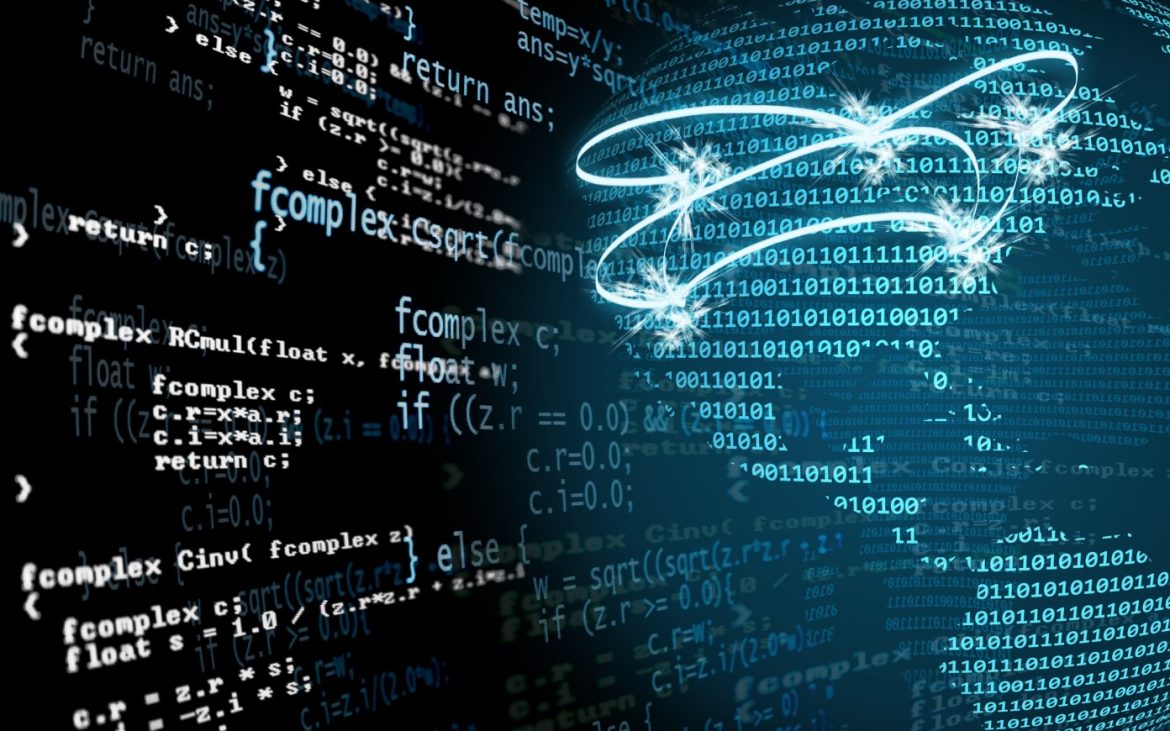
Quantum computing
To skeptics, the quantum computer remains a pipe dream, with no truly groundbreaking solutions to be expected anytime soon. Nevertheless, when the breakthrough comes, it will be huge. Jeremy O’Brien, physicist and professorial research fellow at the University of Bristol, says that “in less than 10 years, quantum computers will begin to outperform everyday computers, leading to breakthroughs in artificial intelligence. The very fast computing power given by quantum computers has the potential to disrupt traditional businesses and challenge cyber security.”
Will the coming year bring new, significant developments on the quantum computing front? That’s a tough call, but we can be sure that work on qubit-based machines will continue.
In 2018, Microsoft announced it would produce a computer capable of breaking RSA code in a hundred seconds. It claims it will achieve this feat within the next five years. Time will tell whether this a mere marketing gimmick. I think the test of the technology will be in its usefulness for communications, specifically the so-called quantum internet and the latest Chinese research that has put a quantum-transmission-supporting satellite into space. Perhaps 2019 will see other satellites enable quantum particles to travel even faster.
The Internet of Things (IoT)
Many people express misgivings about having their homes run by intelligent devices that communicate with each other through an IoT. Lighting fixtures that respond to the time of day, home temperatures autonomously adjusted to weather conditions, refrigerators that know when their owners run out of certain foods (and then order them on their own) and cameras that oversee security are only some of the many features of an interconnected smart home. Admittedly, a smart home is rather expensive to maintain and service (by subscription). But what worries people is security. Do we trust these machines to supervise our living spaces? Do we trust the businesses behind these machines?
While laying these concerns to rest may take a while, IoT advances will meet less resistance in public urban spaces, industry and the energy market. The market value of connected devices is expected to reach $457 billion over the next two years, with the majority of that market in the domains of smart cities, industry, health care and construction.Also, the IoT is stimulating growth in the security services sector.
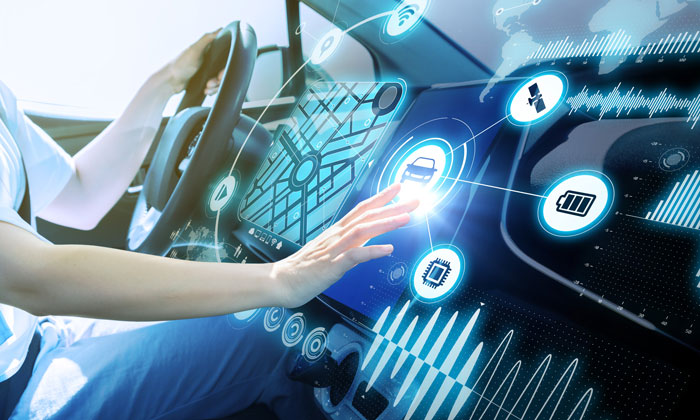
The cloud
I believe that in 2019 trust will become the most valued feature of cloud technology. Today, trust is critical in all digitized fields, including finance, trade and online activities. As it is universally sought-after in the digital realm, the companies whose products offer top levels of security will gain our confidence and, with it, a competitive advantage. This view is supported by experts who forecast that 2019 will see an exceptionally high number of hacking attacks. Hackers will employ new, more sophisticated techniques without abandoning the ones we are already familiar with, such as fake links and compromised chatbots.
2019 is expected to bring more multi-clouding – the use of multiple clouds to eliminate downtime and accelerate the deployment of IT projects. According to SaaS provider RightScale, 95 percent of the companies today use hybrid infrastructures that rely on multiple private and public clouds for their workloads, managing them to reduce costs and increase uptime.
Augmented and virtual reality
Modern technologies make our interactions with the world richer. The best example of this is augmented reality (AR), which superimposes digital information, objects and images on the physical world. The resulting blend changes – and enhances – and cognitive capabilities. A mechanic using AR software no longer needs to bother with technical drawings and operating instructions. All he needs to know to do his job will be displayed on his smartphone (or AR goggles). AR has much greater information potential than virtual reality (VR), which is not being developed nearly as quickly as the fans of artificial worlds would wish as it has hit a few stumbling blocks, such as an unpleasant user experience. The near future is brighter for AR, which soon will be introduced into industry, medicine and architecture. By 2022, an impressive 75 percent of companies will have tried and tested various forms of AR and VR. In 2018, the market value of AR- and VR-enabled devices doubled from 2017, reaching $27 billion. Over the next three years, this market segment is set to skyrocket. According to Statista, the market value will reach a head-spinning $210 billion by 2022.
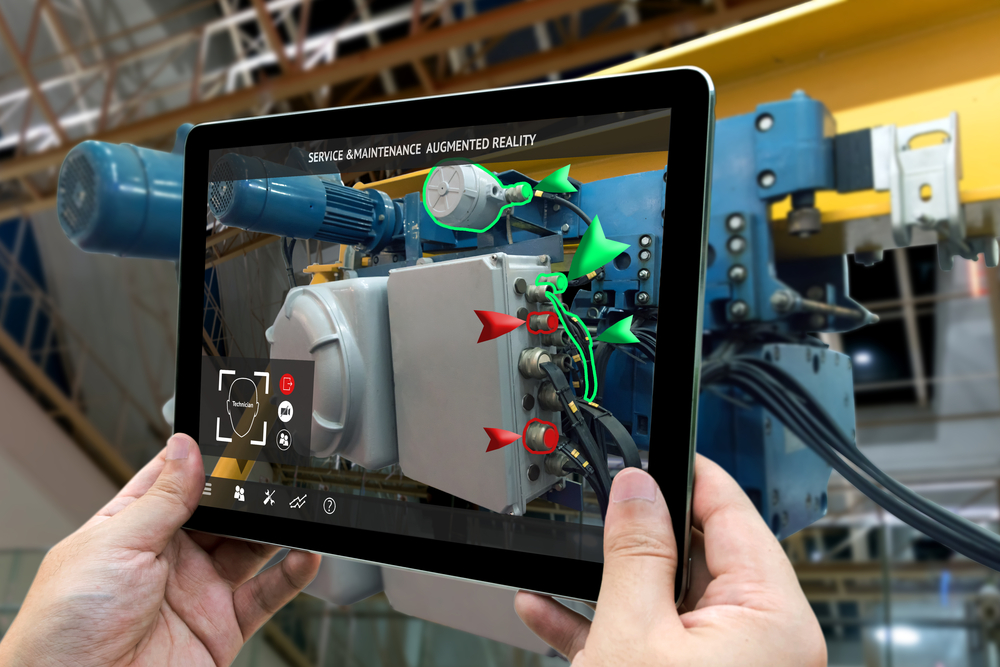
Smart cities
In 2019, advances will be made in smart spaces – environments that allow people and technology to interact. In a smart urban space, traffic lights and street lighting adjust to the time of day; trains and busses automatically accommodate changing numbers of potential passengers; building ventilation systems respond to the weather in real-time; Wi-Fi is ubiquitous and connected devices proliferate. This is happening already, and all across the globe cities are promoting active human-machine relationships. Although Singapore is the world’s smartest city now, half of the world’s smartest cities are in Europe, including Barcelona, London and Oslo. China is home to over a hundred cities that deserve to be called intelligent. The biggest challenge in the coming year will be to keep smart cities cyber-secure. Atlanta learned this the hard way in March 2018, when a cyberattack locked municipal workers – including the courts and the police – out of their computers, paralyzing the city for days.
Connected cars
While in 2018 the public was preoccupied with autonomous vehicles, 2019 is likely to see things get very interesting in the connectedcars sector, which enables vehicles to be permanently connected to the internet, allowing them to communicate with other cars. Always connected gain access to more accurate traffic information as they move around. Combined with autonomy, this potentially gives the idea of the mobile office a whole new meaning.
Today, connected vehicles are most popular in the United States and China. The interactive cars in use in the United States account for as impressive 54 percent of all such vehicles in the world. Statista estimates that 64 million connected cars will be in use around the world in 2019, and that number will double over the next four years.According to analysts, the mandatory eCall security system will bring more connected vehicles to Europe, especially France and Germany.
Ethics and security
These two concepts are of key significance for our evolving technological ecosystem. Debates on securing personal data and people’s right to know how artificial intelligence affects them will likely be even more heated than they were last year. It will be interesting to follow the Chinese “social credit” (or social surveillance) experiment, in which the government will reward and punish people for behaviors it considers positive or negative. It will also be interesting to see how far legislators will go to compel corporations to be more careful handling our data.
2019 will be a critical year for humanity as learns to live with ever smarter and more pervasive technology. As we’ve seen, the technology is not going anywhere. The question is, where are we going with it?
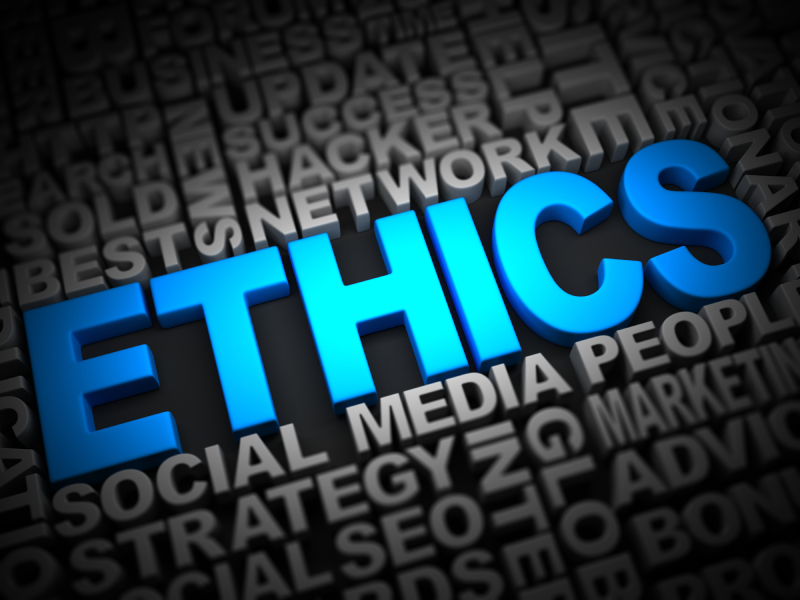
. . .
Works cited
Financial Times, Gideon Rachman, Xi Jinping has changed China’s winning formula, link, 2016.
IDC, Michael Shirer, Jessica Goepfert, New IDC Spending Guide Sees Worldwide Blockchain Spending Growing to $9.7 Billion in 2021, link, 2018.
IDC, Marianne D’aquila, Michael Shirer, Worldwide spending on Cognitive and Artificial Intelligence systems forecast to reach $77.6 billion in 2022, according to new IDC spending guide, link, 2018.
Adobe, Karl Utermohlen, 15 Artificial Intelligence (AI) Stats You Need to Know in 2018, link, 2018.
McKinsey Global Institute, Michael Chui, Sankalp Malhotra, AI adoption advances, but foundational barriers remain, link, 2018.
Customer THINK, Hemendra Singh, Statistics That Prove IoT will become Massive from 2018, link, 2018.
Statists, Christof Baron, Forecast augmented (AR) and virtual reality (VR) market size worldwide from 2016 to 2022 (in billion U.S. dollars), link, 2018.
. . .
Related articles
– Who will gain and who will lose in digital revolution?
– Artificial intelligence is a new electricity
– Only God can count that fast – the world of quantum computing
– Machine Learning. Computers coming of age
– Blockchain poised to shake up our lives

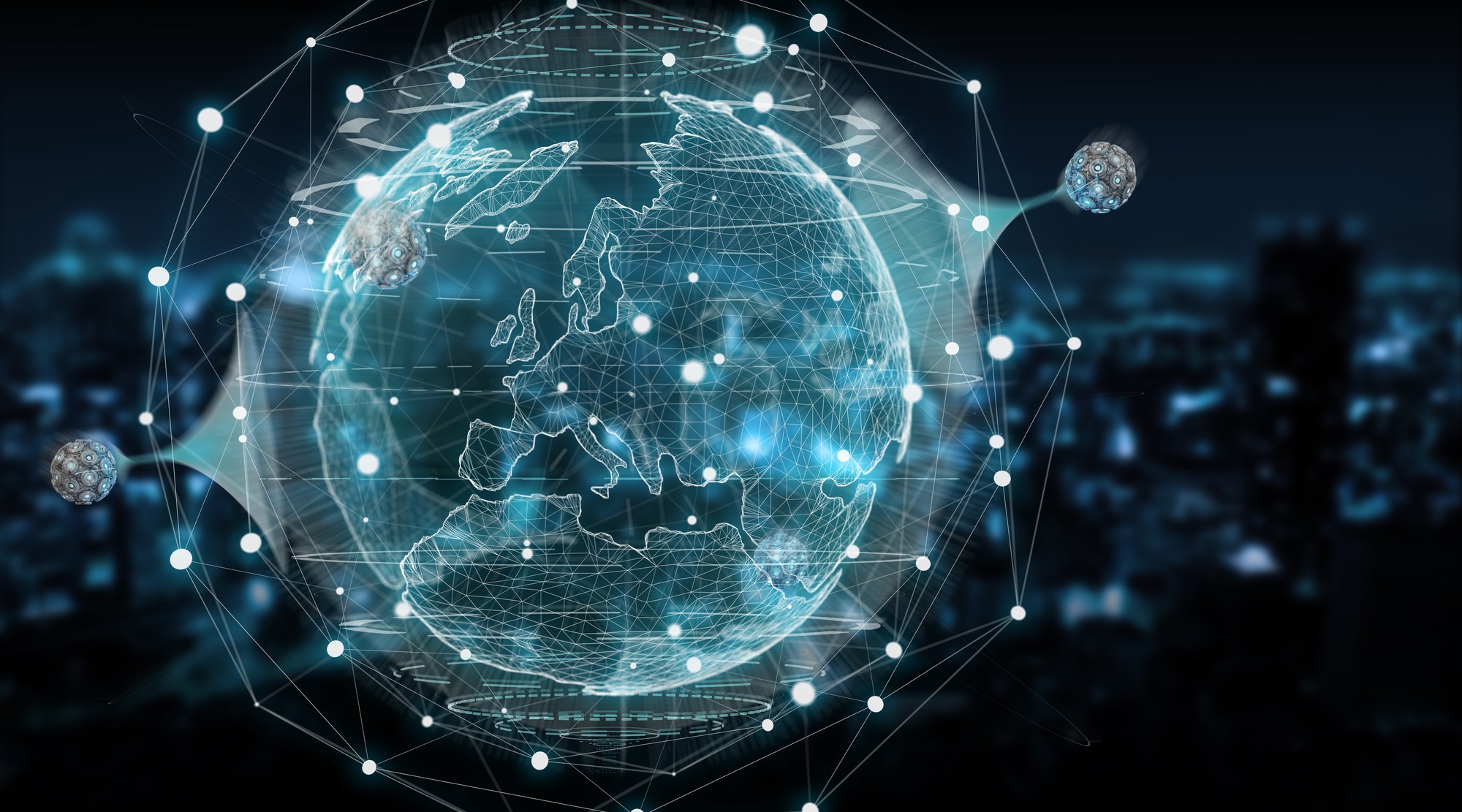




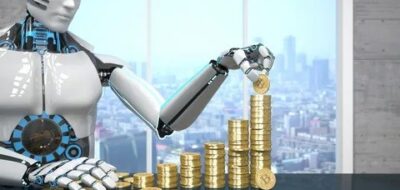
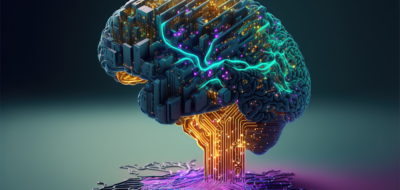


Peter71
The relationship between automation and employment has always been complicated. While automation eliminates old jobs, it also creates new jobs through micro-economic and macro-economic effects. Unlike previous waves of automation, many middle-class jobs may be eliminated by artificial intelligence. The Economist states that ‘the worry that AI could do to white-collar jobs what steam power did to blue-collar ones during the Industrial Revolution’ is ‘worth taking seriously’. Jobs at extreme risk range from paralegals to fast-food cooks, while job demand is likely to increase for care-related professions ranging from personal healthcare to the clergy. Many futurists warn that these jobs may be automated in the next couple of decades and that many of the new jobs may not be ‘accessible to people with average capability’, even with retraining. Economists point out that in the past technology has tended to increase rather than reduce total employment, but acknowledge that ‘we’re in uncharted territory’ with AI.
Dzikus99
We are fortunate to live in this generation, which is full of technological advancements. Now we live in a time where a lot of work is taken over by machines & software. AI has a special place in all the advancement made today. As we know that AI is the science of computers and machines developing intelligence like humans. In this technology, the machines can do some of the simples to complex tasks that we as humans need to do regularly.
NorTom2
Resistance is futile, and if you can’t beat them join them. No matter its predicted benefit, the notion of change is hard to accept because people are settled into comfort zones and face resistance based on the status quo. Profiting from your information might be the best selling point. After all, everyone else will benefit from your data
Simon GEE
Interesting coincidence that this is immediately below a comment about driverless cars. In my opinion it’s absolutely essential that development of artificial organ technology keeps up with the pace of driverless transportation development. Like it or not, car accident fatalities are a major source of replacement organs. You can’t donate a heart or a lung like you can a kidney or a liver, and the lungs of an 86-year-old aren’t going to be much help for a 20-year-old cystic fibrosis patient. Driverless cars will lead to a massive reduction in fatal car accidents, which will make it that much harder to get a donated organ, unless another source can be found. Artificial organs are about the only option that doesn’t come with horrifying ethical complications.
CaffD
Fears that AI might jeopardize jobs for human workers, be misused by malevolent actors, elude accountability or inadvertently disseminate bias and thereby undermine fairness have been at the forefront of the recent scientific literature and media coverage.
Piotr
Let’s say I want to build the next Kickstarter. I have to set up a webserver, database server, and something to take credit card payments, make sure I comply with everybody’s terms of service, start a business and pay accountants and lawyers to make sure I won’t get in trouble with all this money I’m handling, etc. Then I have to set fees high enough, do a bunch of marketing, watch my cash flow, make sure the servers keep running, and probably hire people to help.
Or I can write a couple pages of code and post it to a blockchain that supports smart contracts. From then on I don’t have to touch it. I can market it however much I like, but it’s not as stressful because I have no outgoing cashflow. I don’t even have to charge fees. I can forget the whole thing and people can keep using it as long as they like.
John McLean
Quantum computers will help greatly with security, in medicine ,weather forecast, traffic control. It sure will solve complex data problems.I am not surprised many computer giants are investing into its research. Thanks for sharing
TommyG
I’m a absolute noob at quantum computing, i.e. I know next to nothing about it, but is it true that this form of computation is only applicable for problems with check algorithms available, i.e. the solution can be verified?
Check Batin
Great read. Thank you N
TomK
Great article. Thank you
John McLean
Hi Norbert, Cyber breaches has highlighted one key area. International Laws have no teeth, because there are no laws written and updated to deal with this. We have countries using cyber breaches for funding and masquerading layers down for ransom. Companies are paying the ransom, because their CEO’s have opted not to strengthen the IT Infrastructure. Entry gates are open. Time for change.
Tom Jonezz
While the algorithm may not see bias in the way people see bias, because of the inherently flawed dataset where all people will develop at slightly different rates and their experiences, even those of equal social force/value, will cause varying impressions which may cause differing effects; any algorithmic mechanisms applied will observe and apply a simple value to each circumstance without the understanding to know which evolutionary processes have or have not been impressioned upon.
JohnE3
Interesting and thought provoking article – thanks Norbert
Oscar P
.. and another one. This one is even better 🙂 Nice read man.
PiotrPawlow
If I were asked which was the bigger threat from China to the West, is it Huawei or is it their research on artificial intelligence I would say it’s their research on artificial intelligence.
China has been investing heavily in AI – generally referred to as the development of computer systems that can perform tasks normally requiring human intelligence – in recent years and research by its institutions in the field has surged.
Norbert Biedrzycki
In 2019, AI will expand to cover new dimensions such as media, healthcare, retail, manufacturing, communication, research – in fact, almost every area of modern life has the potential to be influenced by AI applications.
AndrewJo
As with any radically new technology, it is hard to predict all uses of the future quantum internet. However, several major applications have already been identified, including secure communication, clock synchronization, extending the baseline of telescopes, secure identification, achieving efficient agreement on distributed data, exponential savings in communication, quantum sensor networks, as well as secure access to remote quantum computers in the cloud.
Karel Doomm2
Quntum Intenet in the long term is a fantastic development that reshapes security and encryption. But during early adaption, it may create some imbalance as systems transition from legacy models to QC.
Simon GEE
Coffee machines, refrigerators TVs ,cameras , ovens , mugs, water bottles. Just about anything that requires electricity will be AI, because techies will want it and people who want to be “in” with it will jump at it. AI will do plenty of important things, but largely it will precipitate into tacky household appliances that really don’t need to be powered by AI.
Zidan78
AI has been thing since 80s, neural network massive usage as we know nowadays is thing since 2008, it exponencionally grew since then.
Also you are wrong about AI. Recognition of patterns is called clustering and it is one of the dumbest AIs we have. As for “meaning” here I will have to dissapoint you. AI we currently have or will have in the future based on current technology will never be able to give data meaning. Only human can do that. AI can sort information on specific pattern but it can never give that information meaning.
Also note that AI = Machine learning = Deep learning. And most of methods we use are extremelly primitive. As for Neural networks it is AI built on perceptrons and neurons. And even this is very primitive because all it does is to calculate matrixes of weights all over again. Terminology is misleading but it is how it is.
Tom Jonezz
AI has surged massively in the recent (<5) years because computing power reached a threshold where they're able to learn on their own. i.e. Machine Learning.
Machine learning is essentially instead of a programmer telling the computer exactly what to do, we feed the computer a ton of data let it figure out on their own via trial and error (hence the increased computing power required.) This is how Youtube is able to make accurate video suggestions, or how Facebook suggests ads specific to you. This is why all the tech companies wants your data. What do you think you're doing when filling out those "prove that you're not a robot" questionnaires? That's right. Teaching a robot to recognize those images.
This is where China's advantage comes in. Huge population + Lack of privacy laws = Machine learning paradise. Many Chinese companies are already kicking western company's ass when it comes to AI. Only the biggest privacy offenders like Google, Facebook, and Amazon are putting up a fight. You can even see that Apple is falling behind with Siri compared to its competitors.
Alibaba
Who knows. Depends 🙂
Adam Spark Two
Crypto is an intersection of multiple disciplines, Nick Szabo has been talking about Smart Contracts since at least the mid 90s: http://www.fon.hum.uva.nl/rob/Courses/InformationInSpeech/CDROM/Literature/LOTwinterschool2006/szabo.best.vwh.net/smart_contracts_2.html
The concept of eCash has been discussed for a long time too e.g. see this by the NSA (National Security Agency) from 96: https://groups.csail.mit.edu/mac/classes/6.805/articles/money/nsamint/nsamint.htm
There were a number of precursors to this, I just have these two links to hand.
Check Batin
The problem with quantum computing, as the article mentions in passing, is the decoherence problem – a particle interacts with its environment, so that its state transition probability no longer contains interference terms typical of a quantum system. As such, the system behaves classically. To get around this, you need huge amounts of energy to keep the system cold for enough time. This is the barrier between the dream and reality.
My concern about quantum hype is that investors and large corporations are getting on the bandwagon. While it is nice to have money coming into an idea, it isn’t smart money. The decoherence problem was noted in the 70’s, and no one has been able to solve it, but suddenly, now that investors have created a hype bubble, the assumption is that the problem will be solved within 5 years. This is a law of the universe, not something a bunch of kids can write a bit of JavaScript to get around. Once investors lose patience, the money will leave, and probably the more stable grant money will leave as well. Quantum computing as a field will come to a standstill.
Norbert Biedrzycki
CaffD
Norbert. Notably, the private sector’s involvement in the AI-ethics arena has been called into question for potentially using such high-level soft-policy as a portmanteau to either render a social problem technical or to eschew regulation altogether. Beyond the composition of the groups that have produced ethical guidance on AI, the content of this guidance itself is of interest. Are these various groups converging on what ethical AI should be, and the ethical principles that will determine the development of AI? If they diverge, what are these differences and can they be reconciled?
Peter71
The power of artificial intelligence that inadvertently causes destruction and damage cannot be ignored. What will help us control it better is research and in-depth study of the importance of artificial intelligence. Research alone can control the potentially harmful consequences of AI and help us enjoy the fruit of this innovation.
AI will not only change the way we think or live our lives but also explores new horizons, even if its space or the ocean. Humans are getting continually better in defining their desires and quickly transforming this desire into reality. Things will happen so fast that we will not notice the minor changes and will be easily adaptable to the change it brings to us.
John Accural
“trusting technology is harder than trusting people.” This is an easy thing to say if you live in a high-trust culture with a reliable legal system, as is the case of North America, Europe, and a few other countries. Outside this region, things are very different. Unreliable legal systems mean that it is very hard to formalize trust, which limits the scope of economic activity to family and friends. Where I am living, Brazil, a contract is worth less than the paper it is written on, but if you *know* someone, then, wow, it’s important! My belief is that emerging markets will be the hotbed of blockchain adoption, and it will lead to nothing short of a global economic renaissance.
SimonMcD
I don’t know if we’ll make all that much progress in 2019, but we’ll see. The IoT and smart cities in many ways go hand in hand. But what we really need is an open source solution. And AI will only really progress if we go back to studying AGI.
John Accural
The solution is simply to build hybrid systems – based on transparent and reliable transactions on blockchain, but also with built-in management engine is relevant to many human needs of additional Human support during accidents.
Tom Jonezz
If AI depends on having a data set to learn from than chances are the interesting things Chinese AI can do will only work in China. The Chinese government trains an AI on their intranet to figure out how to push public opinion around, but it flops on the English internet because the average Chinese netizen thinks differently from your average redditor.
TomCat
Good post. The IoT and smart cities in many ways go hand in hand. But what we really need is an open source solution. And AI will only really progress if we go back to studying AGI.
Tom299
AI to rule the world 🙂
tom lee
Good read. All the best in 2019
Norbert Biedrzycki
Correct
Adeptus99
Nice summary of coolest tech for 2019 and beyond